
 Flash News
Flash News
The body of a 29-year-old man in Klos is found after 6 days
Arrested a few meters from SPAK, the Special Prosecution seeks 17 years in prison for the drug 'boss'
Giro D'Italia starts today, here are the road axes that will be blocked in Tirana from 13:00-18:00
Who is the new Pope?
Pope Leo XIV greets the faithful for the first time in St. Peter's Square

Alfred Lela
Lulzim Basha's alla Zelensky T-shirt, a 'trend' of his in visual communication during the last months, constitutes a parody. This is not an attempt to criticize Basha or his staff but to mark a political leader's visual or verbal communication symbols and what they say about him. In this case, the irony of the circumstances comes to the fore, accompanied by a naivety based on the wrong starting point that political communication has innovation in its essence. It should focus on his/her political character and nature, and everything depends on his/her personal and public character. Not the opposite, that is, the character does not get used to findings or innovations.
The t-shirt in military green that Mr. Basha has favored in several recent outings has three goals. First, make the returning leader look young (or younger than others). Second, show him in battle (or war), so to speak. Thirdly, an even more central subtext, Basha wants to imagine himself and be imagined by others as the young against the old, the new against the traditional. So, a Zelensky to a Putin. In our case Basha vs. Berisha, Rama, and Meta.
Intuitively, the political figure benefits symbolically from a brand that already exists and can use it, as is the case with Vladimir Zelensky, the new leader at war, the head of a small or medium-sized state, against a superpower like Putin's Russia. But the symbolism begins to weaken and even become ridiculous when the facts are superimposed and weigh heavily on intended metaphors.
Because, in the Zelensky-Putin report, Basha does not resemble the Ukrainian leader in any case. If a figure that Basha illustrates must be inserted in this report, it is that of Dimitri Medvedev, a puppet of Vladimir Putin. Such is Basha's relationship, at least publicly obtained, with Sali Berisha, for example—a dependency report. The Ukrainian leader, whom Basha likes to follow with a military shirt or a mise-en-scène of war, does not have this spider nest in the corner of the edifice of his public persona.
What "kills" Basha more than this is an already old stratification, almost turned into folklore, of his "fruitless" and losing battles and their ridicule by the mainstream or social media. "The battle has just begun" circulates as one of the most descriptive jokes of Basha as a politician.
To take a politician who wants to reinvent himself and insert him right into the heart of this harmful folklore is extreme naivety in political communication. Quite the opposite should have been the path taken. A political figure from the old quarters of politics, where he has served longer than he has led, should not pursue a message attuned to the new/provocative. A politician not known for winning battles must not color the public profile with military highlights nor verbalize in terms of war. A chairman who has usurped one of the two old parties of the spectrum (which also aims to be right-wing) does not go to lecture as a warrior of morality and the new.
He has the freedom to do all this, but he also needs the patience not to be taken seriously.
And this should be at the heart of Basha's public communication effort: how to build a leader that people take seriously.
Latest news


The body of a 29-year-old man in Klos is found after 6 days
2025-05-09 12:01:27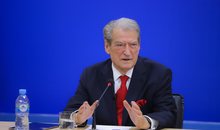
Berisha: After May 12, this opposition will become the majority in Albania
2025-05-09 11:52:37
Leo XIV celebrates his first Mass as Pope
2025-05-09 11:42:34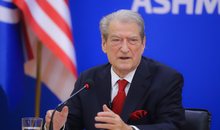

Spaho denounces: SP candidate in Pogradec gives 100 thousand lek for the vote
2025-05-09 11:27:26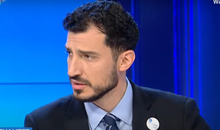
Mustafaj: Proud of the worthy campaign of the DP
2025-05-09 11:22:20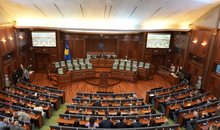
Constitution fails again, Kosovo still without a new Assembly
2025-05-09 11:06:55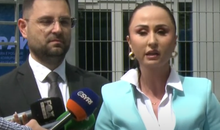





"Votes have no price", the US embassy in Tirana 'slaps' Rama
2025-05-09 10:06:49

Two young men arrested for supplying criminal groups with firearms
2025-05-09 09:45:19







Foreign exchange/ How much foreign currencies are bought and sold today
2025-05-09 08:19:18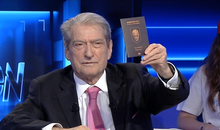
The gift that Berisha gave to Rama 'live'
2025-05-09 08:13:51
3 signs that show you are spiritually protected
2025-05-09 08:05:39

Bars can't hold back anymore, start increasing coffee prices, 4.7% more in April
2025-05-09 07:46:49

Horoscope, what do the stars have in store for you today?
2025-05-09 07:22:06
Unstable weather, afternoon brings rain
2025-05-09 07:01:29
Morning Post/ In 2 lines: What mattered yesterday in Albania
2025-05-09 06:45:46
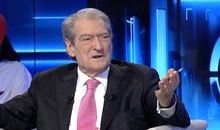
How did LaCivita change the DP campaign? Berisha: He studied the opponent
2025-05-08 22:49:51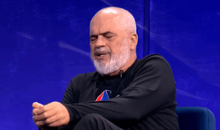

David defeats Goliath
2025-05-08 22:15:50

Journalist: There are SPAK infiltrators in party headquarters
2025-05-08 21:55:15
Who is the new Pope?
2025-05-08 21:48:13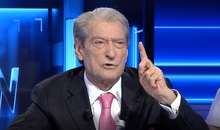
Berisha finally reveals when he will retire from politics
2025-05-08 21:33:46


LaCivita in Lezha: Albanians will fire Edi Rama from his job
2025-05-08 21:11:20


Berisha: LaCivita chose us because he believes in Reagan's program
2025-05-08 20:48:40
He rejected America to serve Pogradec, Genti Çela tells about life in "Elevate"
2025-05-08 20:26:28



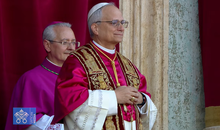
Pope Leo XIV greets the faithful for the first time in St. Peter's Square
2025-05-08 19:29:33




Photo session with LaCivitta in Tirana: For Great Albania
2025-05-08 18:40:18
Source: DASH decision a personal victory for Berisha
2025-05-08 18:30:10
Take off those crazy glasses and see where you've taken him?
2025-05-08 18:02:47
LDK files criminal charges against members of the incumbent Government
2025-05-08 18:02:00







BIRN analysis: Tirana, the determining district for the future majority
2025-05-08 16:04:03




Chris LaCivita's contract with the DP, Berisha: 100% correct and clean
2025-05-08 15:11:11

"These are the peak days", Berisha reveals when he will travel to the USA
2025-05-08 14:45:25


Endless boxes with filled-in ballots, DP demands separation of votes from Greece
2025-05-08 14:11:12


Photo/ Who are the 3 associates of Talo Çela arrested in Dubai?
2025-05-08 13:37:09
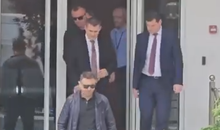
Hetimi për krimet zgjedhore, Altin Dumani zbarkon në Prokurorinë e Shkodrës
2025-05-08 13:06:21
DASH paves the way for Berisha, Alizoti: Great news on the eve of Great Albania!
2025-05-08 13:03:48

"Freedom works", DP welcomes the US position
2025-05-08 12:48:07

Black smoke rises from the Sistine Chapel, the Vatican still without a Pope
2025-05-08 12:26:18
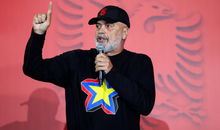




Davide Pecorrelli extradited to Albania
2025-05-08 11:29:04
'May 11, Albania will react', Xhaferri: Electoral criminals will pay
2025-05-08 11:21:46

Gjin Gjoni: Non Grata fell, Rama should get ready to go to McGonigal
2025-05-08 11:01:54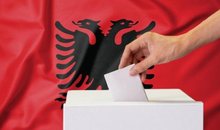
May 8th deadline for immigrants to vote in Greece extended by one day
2025-05-08 10:48:42
Collapse of massive chrome structure, still no trace of 29-year-old
2025-05-08 10:40:04
